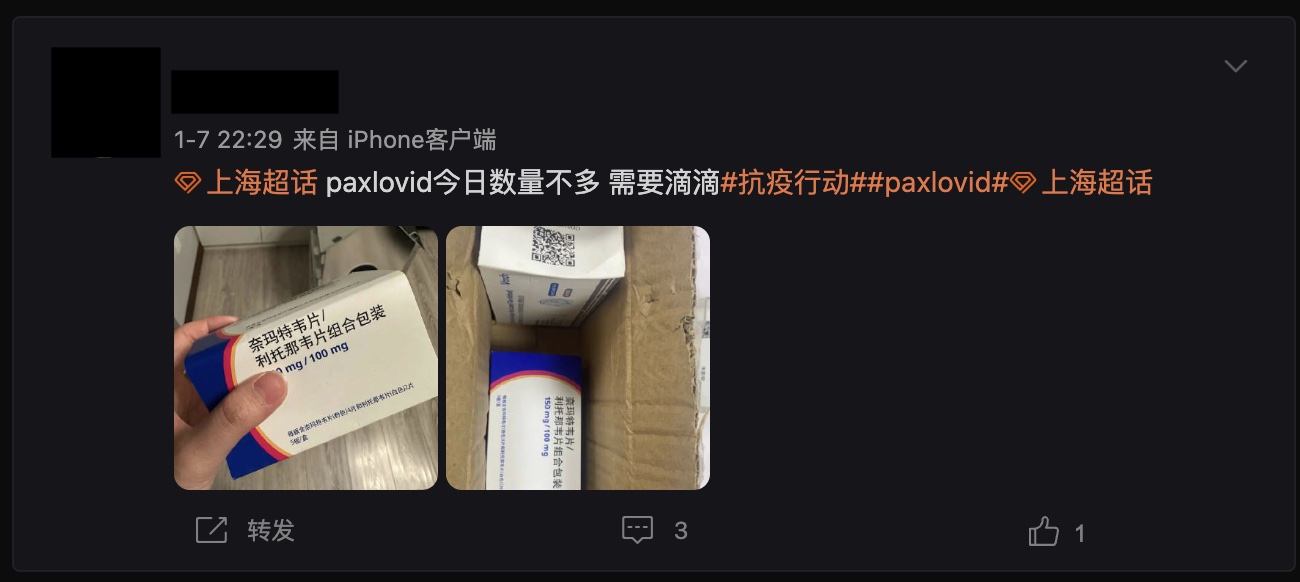China Report is MIT Technology Review’s newsletter about technology developments in China. Sign up to receive it in your inbox every Tuesday.
Lots going on this week. First, MIT Technology Review announced yesterday our picks for this year’s 10 Breakthrough Technologies. If you’ve been watching China, several items on the list should ring a bell, like the inevitable adoption of electric vehicles and the growing chip design structure known as RISC-V. These are areas where China sees an opportunity to challenge Western dominance. To understand why we think these technologies represent the future, I recommend you read the full list here.
You should also know that on Sunday, China officially scrubbed mandatory quarantine for inbound travelers, almost three years after the policy began. This would have been much bigger news at any other time, but right now the country is consumed by an unprecedented surge of domestic covid infections. An official in Henan, China’s third-most-populous province, recently estimated that nearly 90% of its residents have now been infected with covid. This means the health-care system is stretched thin, covid treatments are in high demand, and many people are worried about themselves and their loved ones, especially seniors and people with preexisting conditions.
It’s against this backdrop that scammers are finding new opportunities; unfortunately, they have started taking advantage of this wave of anxiety and fear in China by claiming on social media to sell covid treatments—particularly Paxlovid, the Pfizer-developed medication that has been the most effective in preventing severe covid symptoms.
Although Paxlovid has been approved for emergency use in China since February 2022, the actual demand for it had long been low since local spread was kept to a minimum by harsh zero-covid policies. But when the country suddenly reversed course and faced millions of people getting sick, the inventory of Paxlovid quickly ran out across China. Patients could only get the drug either through connections in elite circles or by competing with numerous other people waiting for the few online pharmacies to release their daily supply. It’s no surprise, then, that others went online—either to Chinese social platforms like Weibo and Xiaohongshu or to international ones like Twitter—seeking help from more resourceful people.
And that’s ground that’s ripe for scams.
Last week, I received a mysterious Twitter follower named “Boon Jin”—an account that uses an Asian-looking female doctor as the avatar and says in the bio, in clearly machine-translated Chinese, that she sells Paxlovid to China.
After I got in touch with “Jin” on WeChat, she tried to sell me Paxlovid for the price of 2,500 rmb ($370) per box of five tablets. After initially promising she could receive payment via the Chinese fintech app Alipay or bank transfer, she later insisted I pay either through the cryptocurrency USDT (the preferred method) or to a Paypal user in New Jersey with a completely different name and photo.
While this specific Twitter account disappeared a week later—it’s unclear whether it was deactivated voluntarily or by the platform—there are several similar accounts still running: “Jackie Wong,” “Li Haitao,” and “Yung Lin Xiang,” who also use photos of Asian-looking doctors as their avatars and market Paxlovid in broken, translated Chinese. In the Twitter comments on some of these accounts, at least two people said they paid hundreds of dollars without receiving anything.
This tactic—seemingly from scammers without Chinese backgrounds targeting Chinese immigrants abroad who may be looking for ways to send Paxlovid home—is pretty primitive. But it reminded me that when people are desperate to get treatment, they can miss or ignore even pretty obvious red flags.
Similar scams are, perhaps unsurprisingly, incredibly prevalent within China right now, and in the days since my messages with Jin, I’ve talked with several Chinese people who have been caught up in scams after they searched on social media for Paxlovid.
Liao, a Chinese woman in Shenzhen who asked that we only use her last name, was desperate when her father, a 54-year-old with preexisting conditions, was admitted to the hospital for covid on December 28 and almost lost consciousness the next day. When the doctor suggested Paxlovid but told her the hospital didn’t have any left, she went on the popular social media platform Xiaohongshu to post her call for help.
Soon people started messaging her to say they could sell her Paxlovid. One account claimed it had the Pfizer version (as opposed to the generic version produced in other countries) and could ship the medicine the same day. She paid the asking price of 3,600 yuan (about $530) without hesitation.
Yet the promised medicine never came, and the account she paid later deactivated. She reported it to the police but was told the chance of getting her money back is low. Luckily, Liao’s father has stabilized and no longer needs the medicine.
Liao is not the only victim. Another person who lives in Hubei tells me she met a scammer on Weibo and has since found out that he deceived at least 30 people out of nearly $30,000. The victims have formed a group chat to coordinate what they can do, and the scammer’s account remains active on Weibo even though it’s been reported repeatedly. It’s still posting photos of Paxlovid, looking for new targets.

Even those who are lucky enough to find sellers who are not scammers still need to deal with other forms of deception—like counterfeit drugs and theft (since the package is labeled with the name of the medication). And some people have turned to generic alternatives to Paxlovid, like Primovir or Paxista, that are made by Indian pharmaceutical companies and are questionable in terms of efficacy; some labs in China have examined samples of these generic drugs and found no effective ingredients.
It’s the immense challenges in accessing Paxlovid in the first place that have made all this fraudulent activity possible. A lot of Chinese people are scared and anxious, and some have probably put too much stock in the power of Paxlovid. Most of them are not equipped with the knowledge of who should take Paxlovid or how to take it without risks, but they are just trying to find anything that could help a little bit.
Of course, this isn’t the first time scammers have taken advantage of desperate individuals; online scammers are always ready, in China and elsewhere, to profit from fears and emergencies. But questions remain about whether social media platforms like Twitter and Weibo are doing enough to curtail such activities and regain users’ trust.
The real solution would be to ensure steady and affordable access to covid treatment in China, but that may take more time. Pfizer failed to reach a deal with the Chinese health-care authorities this week to include the drug in public health insurance coverage. Access to Paxlovid has reportedly increased in hospitals in Beijing and Shanghai, yet it remains hard to get in most other places. Until the supply shortage is addressed, the scammers will stay, and more people will get hurt during their darkest moments.
Have you heard of any other types of scams taking advantage of China’s current covid crisis? I’d love to hear from you. Write to me at zeyi@technologyreview.com.
Catch up with China
1. In more news about Pfizer, the company denied earlier reports that it is in talks with the Chinese government to license a generic version of Paxlovid to be manufactured in China. (Reuters $)
2. Here’s a rare inside look into how President Xi Jinping changed his mind about China’s zero-covid policy. (Wall Street Journal $)
3. Chinese tech mogul Jack Ma will reduce his control of Ant Group—Alibaba’s spinoff fintech arm—from over 50% to just 6%. Ma has been retreating from his role since his criticism of financial regulators in 2020 tanked Ant Group’s IPO. (BBC News)
4. US computer maker Dell told suppliers that it aims to stop using chips made in China by 2024. HP is gauging similar possibilities. (Nikkei Asia $)
5. For some YouTubers, predicting China’s economic collapse (over and over again) is the secret to virality. (Semafor)
6. China plans to build a moon base by 2028. And it may be powered by nuclear energy. (Bloomberg $)
- Bill Nelson, the administrator of NASA, thinks the US should be alarmed by China’s moon explorations. (Politico)
7. Chinese researchers claim they found a way to break quantum encryption. Others are not fully convinced. (Financial Times $)
8. Tom Zhu, Tesla’s China boss, has been promoted to the company’s highest position under Elon Musk. He will oversee the car maker’s global production and deliveries. (Reuters $)
- Though it hasn’t been confirmed, a Chinese publication reported last month that Zhu will replace Musk as Tesla’s global CEO. (PingWest)
9. These Chinese women immigrated to the US wishing for better lives. They are now silently suffering from domestic violence in a strange land. (The China Project)
Lost in translation
China’s rural areas are also being ravaged by mass covid infections, and these are places where even basic cold and fever medicine is hard to obtain. As Chinese publication Shanghai Observer reported, while urban residents turn to e-commerce platforms and online self-help groups, seniors living in remote villages have neither the knowledge nor the geographical proximity to benefit from these tech connections.
Instead, a group of volunteers started using spreadsheets to document demand in villages and coordinate delivery of fever medicine. They source the medicine from corporate donations, pharmacies in cities that are better prepared for the surge, and individuals who have extra pills. For their first project, they managed to send 3,000 pills of fever reducer and 2,000 boxes of cold medicine to a village in the western province of Shaanxi. By January 5, an estimated 13,000 senior citizens from 110 villages across the country had benefited from the program.
One more thing
A new video game, Breakout 13, was released by a Chinese indie game studio on Monday. It takes you inside one of China’s internet addiction correction facilities, which infamously use physical abuse and electric shock therapy to “cure” kids who play too many video games or are just too “difficult” to parent. In recent years, indie games have become an increasingly popular way to engage with sensitive topics that can be quickly censored if they appear in traditional cultural forms, like film or music. The game is available to be played in Chinese and English.

